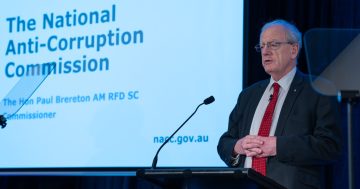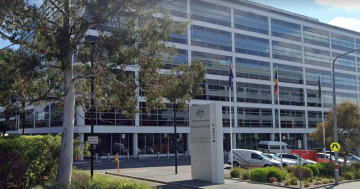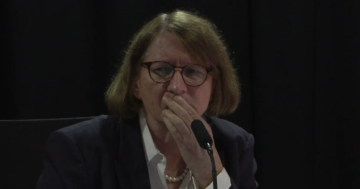
Australia’s anti-corruption agencies say public service whistleblowers should be protected. Photo: File.
Australia’s 10 independent federal, state and territory anti-corruption agencies have spoken in unison to call for public service whistleblower protection to be a fundamental principle underlying good government.
However, public servants should not be exempted from liability for deliberately providing false information under the guise of whistleblowing.
In a joint statement issued this week, the anti-corruption bodies listed 12 principles they insist are necessary for them to be able to function effectively.
The agencies include the National Anti-Corruption Commission and the ACT Integrity Commission.
Whistleblower protection is the latest addition to the best practice principles released in December 2022, following a collaborative review of the integrity framework the agencies operate under.
The agencies said the new principles express their shared approach to engaging with Australia’s obligations under the United Nations Convention against Corruption.
The Fundamental Principles of Australian Anti-Corruption Commissions are:
- The ability to receive and consider referrals from anyone.
- The ability to commence an investigation on the commission’s own motion.
- A mandatory reporting obligation for the heads of public sector agencies to report suspected corruption.
- Protections for whistleblowers and witnesses.
- Coercive powers to obtain information and evidence.
- The ability to refer matters to a prosecuting authority.
- The ability to make recommendations.
- The ability to report on investigations and make public statements.
- A corruption prevention and education function.
- A sufficient and predictable budget.
- Transparency of appointments.
- Effective and proportionate oversight.
“The 12 principles are informed by the Jakarta Principles for Anti-Corruption Commissions, a set of principles to ensure the independence and effectiveness of anti-corruption agencies, as part of countries’ commitments and obligations under the UNCAC, to which Australia is a party,” the agencies’ statement said.
Specifically addressing protections for whistleblowers and witnesses, Principle Four says:
“A person who refers information or gives evidence to a Commission should be immune from any criminal, civil, administrative or disciplinary liability, and from the enforcement against them of contractual rights or remedies, for doing so.
“The taking of any reprisal against a person for giving information or evidence to a Commission should be an offence.
“However, these protections should not exempt such a person from liability for providing intentionally false or misleading information or evidence, nor from liability for past conduct of the person that is disclosed by the person.”
The commissions described whistleblower protection as a “key addition” to the original list.
Principle Eight was also highlighted, emphasising that a commission must be able to effectively communicate its work to the community through public statements and reports.
“This is important to expose corrupt conduct, to identify matters which may present a corruption risk, and to clear the air of unfounded allegations of corruption,” the statement said.
More comprehensive details on each of the 12 fundamental principles can be found on the NACC’s website.
The NACC has also issued an update on its operational activity, showing that as of 31 July, it is conducting 30 preliminary investigations and 29 corruption investigations, including eight joint investigations.
The Commission is also overseeing or monitoring 19 investigations by other agencies, has six matters before the court and 429 referrals pending assessment.
Over the period from 1 July 2024 to 28 July 2024, the Commission had received 180 referrals, excluded 148 referrals at the triage stage. It opened three new preliminary investigations and three new corruption investigations.
The Australian Public Sector Anti-Corruption Conference, held in Darwin this week, closed by announcing that National Anti-Corruption Commissioner Paul Brereton will host the next such conference in Canberra in 2026.
The APSACC 2026 theme will be ‘A strategic approach to integrity – culture, systems and accountability’.
Held every two years, APSACC is the leading anti-corruption event in Australia with a primary focus on preventing, exposing and responding to corrupt conduct and corruption risks in the public sector by sharing knowledge, exchanging ideas and collaborating with partners from across Australia, the region and internationally.
The NACC was founded in July 2023 to investigate allegations of serious or systemic corrupt conduct within the Commonwealth public sector.
This includes conduct that occurred before it was established.
The NACC can investigate the conduct of:
- Any person that adversely affects a public official’s honest or impartial exercise of powers or performance of official duties
- A public official that involves a breach of public trust
- A public official that involves abuse of office, and
- A public official or former public official that involves the misuse of documents or information they have gained in their capacity as a public official.
Original Article published by Chris Johnson on Riotact.








